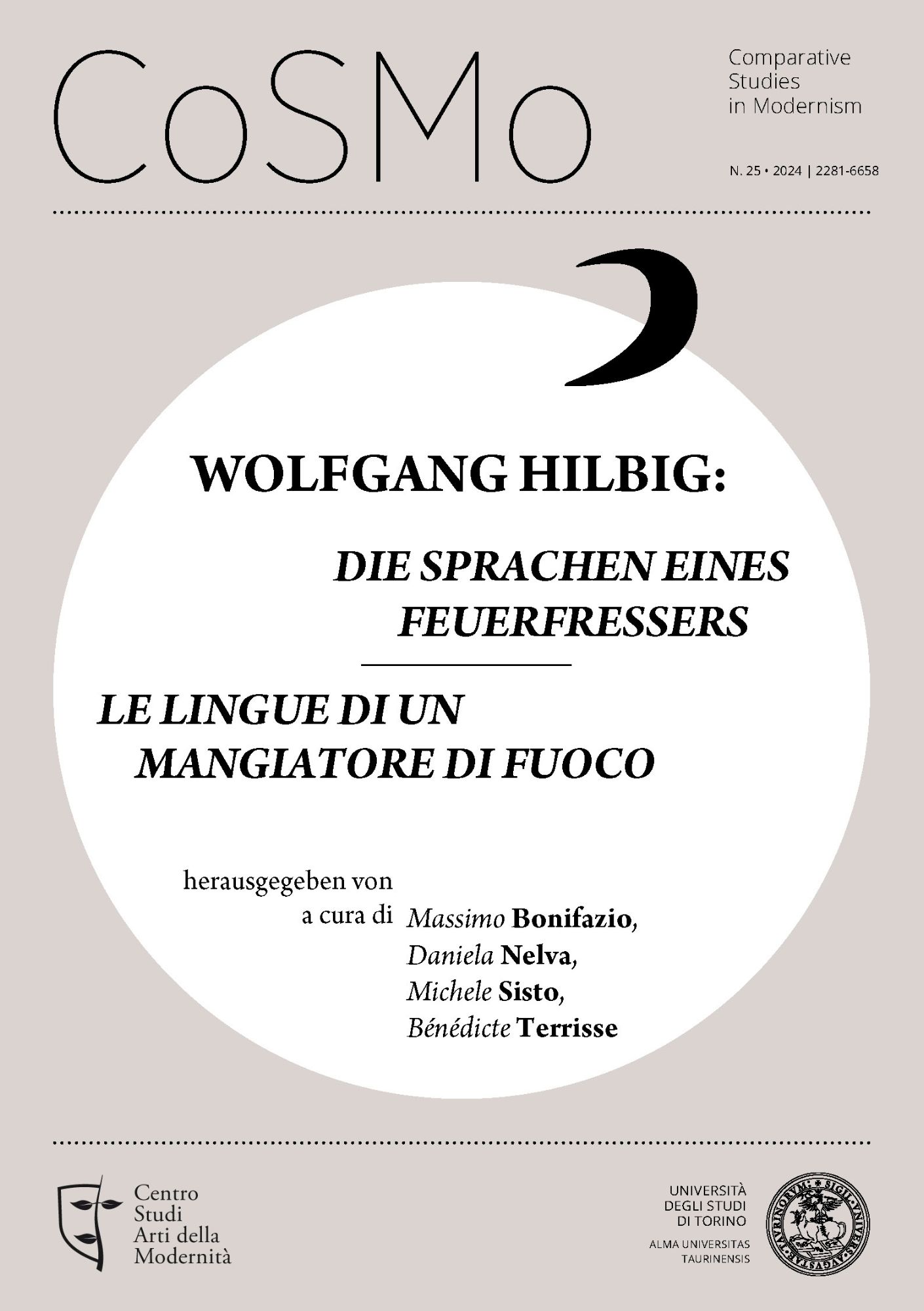Wolfgang Hilbig in Italian Literary Field
Consecration Circuits, Translations, Interpretations
DOI:
https://doi.org/10.13135/2281-6658/11481Keywords:
German Studies, Publishing Houses, Translation, Literary Field, Literary ValueAbstract
How is literary value generated? Reconstructing Hilbig’s trajectory in Italy through Bourdieu’s field theory allows us to sketch a phenomenology of the accumulation and circulation of symbolic capital for a translated author. By considering each translation, essay, or review simultaneously as a form of appropriation and as a position-taking in the literary field, we can identify three relatively distinct circuits: 1) the academic one, where German Studies scholars like Anna Chiarloni legitimize the writer as an object of study; 2) the publishing circuit, where translators such as Agnese Grieco and Roberta Gado, and publishers like Il Saggiatore and Keller, bring the author into existence in translation; 3) the literary circuit in the strictest sense, where writers and critics like Giorgio Mascitelli and Luigi Abiusi incorporate the author into the repertoire of foreign literature known and recognized in Italy. All three circuits contribute, through collective and incessant labor, to constructing the author’s literary value, while simultaneously proposing diverse readings of his works.
Downloads
Downloads
Published
Issue
Section
License
Authors keep the copyrights for their work and give the journal the work’s first publication copyright, which is at the same time licensed under a Creative Commons License – Attribution, which in turn allows other parties to share the work with an acknowledgement of the work's authorship and initial publication in this journal.
Content Licence

You are free to copy, distribute and transmit the work, and to adapt the work. You must attribute the work in the manner specified by the author or licensor (but not in any way that suggests that they endorse you or your use of the work).
Metadata licence

CoSMo published articles metadata are dedicated to the public domain by waiving all publisher's rights to the work worldwide under copyright law, including all related and neighboring rights, to the extent allowed by law.
You can copy, modify, distribute and perform the work, even for commercial purposes, all without asking permission.





